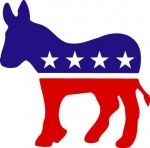What’s Left: Philosophy of Politics

I would be lying if I said that I had extensive knowledge of political philosophy, let alone philosophy that outlines the ideal ‘liberal” government. The only one I can think of off the top of my head is Karl Marx and while I do agree with some of his writings on the control of the means of production, the world has changed too much since the industrial revolution to make communism the “ideal government.” But what I lack in philosophical knowledge can be made up for with bleeding-heart idealism. While I normally prefer to air on the side of pragmatism when it comes to most things, there aren’t very many opportunities to pretend we live in a perfect world. Hypothetically, let’s say that tomorrow the U.S. had no debt and the unlimited resources to do whatever we wanted with no adverse consequences. What are the things we would ask the government to do and how could they potentially influence the lives of its citizens in positive ways?
In my mind the government should offer some degree of social welfare for its citizens. While the government shouldn’t have to provide everything, I do believe that there are some basic necessities that should be available. In the real world, all social welfare programs are burdened by budgetary concerns, which often make them less than practical. But if we’re talking purely about the ideal world, why shouldn’t we have them? Physical well-being and the benefits that public healthcare provide could arguably be tied back to those core American values of life, liberty and the pursuit of happiness. While a lot of welfare and public housing programs can provide a mixed bag of success, it’s hard to argue that they should be done away with completely. Leaving the poorest individuals to completely fend for themselves is not the policy of a moral society.
Second, regulatory agencies aren’t the walls of impotence blocking the growth of private industry. It’s no secret that companies, whether directly or indirectly, can harm their workers, consumers and the environment. If you were to ask me, all of those things deserve some degree of protection, whether major or minor. A government should be conscience about the effects that industry and private citizens have on the world around them. While it would be nice to think that one day we can actively recycle and conserve energy to the point where we don’t need the government to police our every action, convenience prevents that from ever happening.
The overarching idea though is that the ideal liberal government is one that fights for the wellbeing of its citizens. The government is not taking away anyone’s freedom by providing services to those who have been burdened by misfortune. There are even some circumstances and ideals that can benefit all of society and not just a select few. There has to be a way for the government to improve everyone’s lives.






